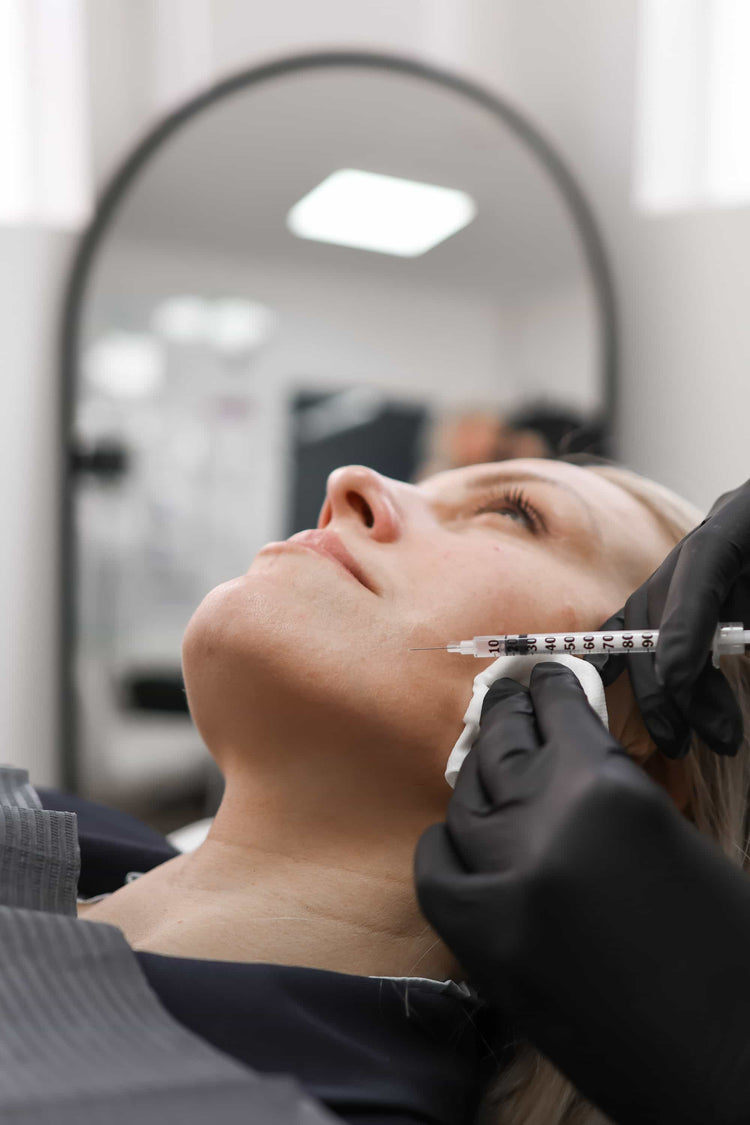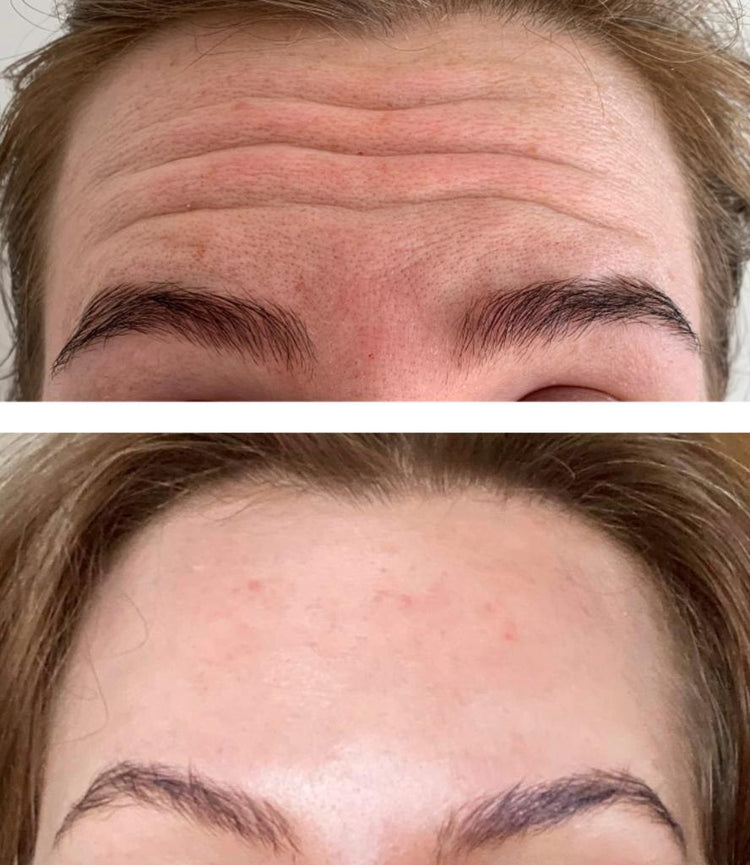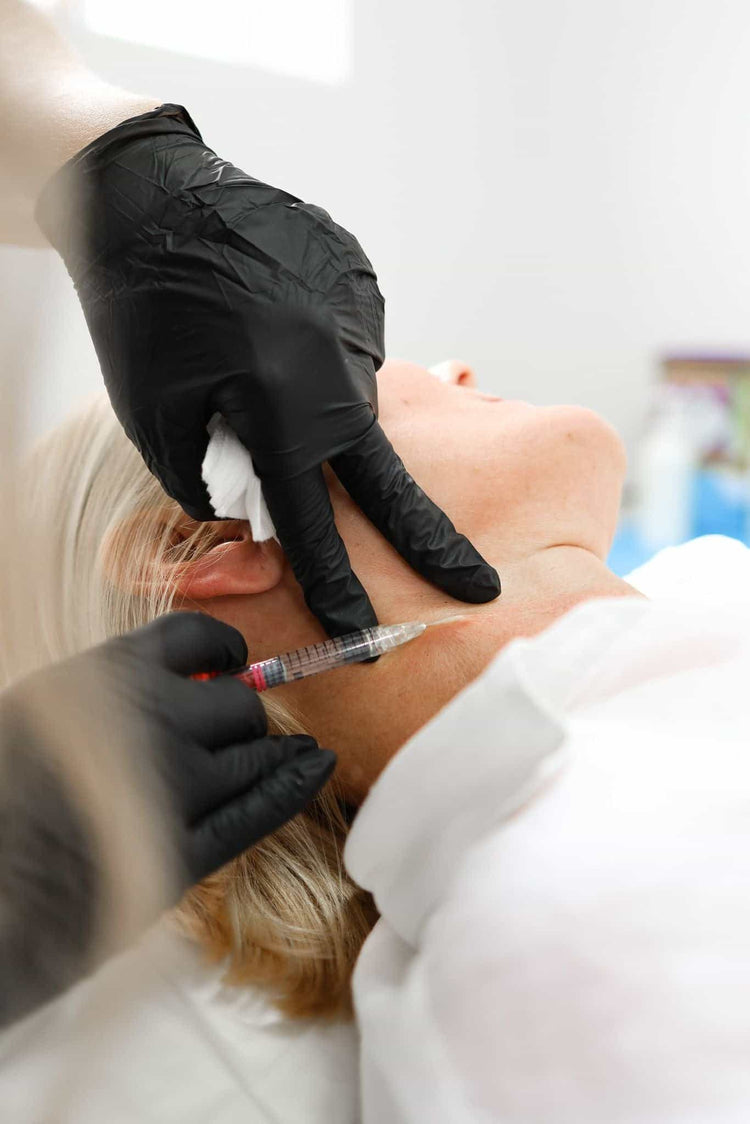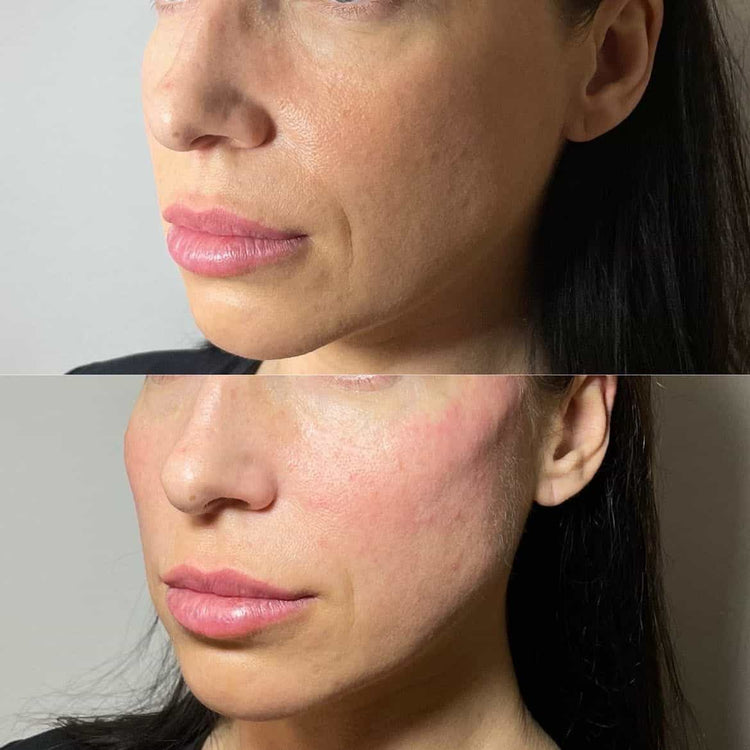Uneven Complexion Causes
Uneven complexion can be a common concern, leaving individuals feeling self-conscious about their skin. A variety of factors can contribute to this issue, ranging from genetics and hormonal fluctuations to environmental damage and lifestyle choices. Understanding the underlying causes of uneven complexion is crucial for determining the most effective treatment options.
Common Factors Contributing to Uneven Skin Tone
One prominent cause is sun exposure, which can lead to hyperpigmentation, resulting in dark spots or patches on the skin. Excessive melanin production triggered by UV rays is responsible for this darkening. Hormonal imbalances, such as those experienced during pregnancy or menopause, can also disrupt pigmentation, causing melasma, characterized by brown patches often appearing on the face.
Certain medical conditions, including eczema and psoriasis, can contribute to uneven skin tone due to inflammation and cell turnover abnormalities. Additionally, genetic predisposition plays a role, as some individuals are genetically more susceptible to hyperpigmentation or other skin irregularities. Lastly, improper skincare practices, like using harsh scrubs or exfoliants, can damage the skin barrier, leading to uneven texture and pigmentation.
Identifying the Underlying Cause
Lifestyle factors such as diet and stress can also impact skin health. A diet lacking in essential nutrients can lead to dullness and uneven tone. Chronic stress can trigger hormonal imbalances, further exacerbating pigmentation issues.
Identifying the specific cause of uneven complexion is essential for effective treatment. Consulting a dermatologist or qualified skincare professional can help determine the underlying factors contributing to the concern. They can then recommend personalized solutions, such as topical creams, chemical peels, laser therapy, or lifestyle modifications.
Treatment Options for Uneven Complexion in Puttenham
Uneven complexion, characterized by discoloration and patches of varying shades, is a common skin concern that can significantly impact one’s self-esteem.
Chemical Peels for Skin Renewal
Chemical peels offer a popular treatment option for addressing uneven complexion. These peels involve the application of a chemical solution to the skin, which exfoliates the outer layers and stimulates cell regeneration.
Different types of chemical peels are available, ranging in strength from superficial to deep. Superficial peels, often containing alpha-hydroxy acids (AHAs) like glycolic acid or lactic acid, primarily target the outermost layer of skin, improving texture and mild pigmentation issues. Medium-depth peels utilize trichloroacetic acid (TCA) and can penetrate deeper into the skin, addressing moderate hyperpigmentation and fine lines.

For more severe cases of uneven complexion, deep chemical peels using phenol may be recommended. These peels require longer recovery times but can significantly improve the appearance of deep scars, wrinkles, and extensive pigmentation problems.
Microdermabrasion: Exfoliating for a Brighter Complexion
Microdermabrasion is a non-invasive exfoliating treatment that can help improve the appearance of uneven complexion.
This procedure involves using a device with fine crystals to gently buff away the top layer of dead skin cells, revealing brighter and smoother skin underneath.
Microdermabrasion can be effective in reducing the appearance of hyperpigmentation, sun spots, and uneven skin tone by promoting cell turnover and stimulating collagen production.
Laser Treatments for Targeted Improvement

Laser treatments offer a targeted approach to improving uneven complexion. Different types of lasers are used depending on the specific skin concerns.
Intense Pulsed Light (IPL) therapy uses broad-spectrum light to target melanin in the skin, effectively reducing hyperpigmentation, sun spots, and age spots.
Fractional laser resurfacing works by creating tiny columns of microscopic wounds in the skin. This stimulates collagen production, leading to improved skin texture, reduced pore size, and a more even complexion.
Skin Brightening Facials and Masks

In Puttenham, Surrey, various treatments are available for those seeking to address uneven complexions. Skin brightening facials can be particularly beneficial, often incorporating ingredients like vitamin C, hyaluronic acid, or retinol to brighten the skin tone and minimize the appearance of discoloration.
These facials may also include exfoliation techniques to remove dead skin cells and promote cell turnover, revealing a more radiant complexion. Masks designed to target uneven skin tone are another popular option. Clay masks can help absorb excess oil and impurities, while hydrating masks enriched with antioxidants can help brighten the skin.
Topical Skincare Products for at-Home Maintenance
Topical skincare products offer a convenient way to maintain and improve uneven complexion at home.
Products containing ingredients like vitamin C, niacinamide, and retinol can be effective in brightening the skin tone, reducing hyperpigmentation, and promoting collagen production.
Vitamin C is a powerful antioxidant that helps protect the skin from environmental damage while also inhibiting melanin production, thus fading dark spots. Niacinamide has anti-inflammatory properties and can help regulate oil production, leading to a more even complexion. Retinol, a derivative of vitamin A, stimulates cell turnover, promoting the shedding of pigmented cells and revealing brighter skin.
It’s essential to choose products formulated for your specific skin type and concerns.
For example, individuals with sensitive skin may want to opt for gentle formulations while those with oily skin may benefit from products containing salicylic acid to control oil production and prevent breakouts.
Choosing the Right Treatment for You
Uneven complexion can be a source of concern, affecting self-confidence and making individuals feel self-conscious about their appearance. Fortunately, understanding the various causes and available treatments can empower you to achieve a more balanced and radiant complexion. Whether it’s sun damage, hormonal fluctuations, or genetic predisposition, identifying the root cause is crucial for determining the most effective treatment plan.
Consultation with a Dermatologist or Esthetician
Choosing the right treatment for uneven complexion involves careful consideration of the underlying causes and individual skin concerns. Consulting with a dermatologist or qualified esthetician is highly recommended. These skincare professionals can assess your skin type, analyze the specific pigmentation issues, and recommend personalized solutions tailored to your needs.
During the consultation, be prepared to discuss your medical history, current skincare routine, sun exposure habits, and any other relevant factors that may contribute to your uneven complexion. The dermatologist or esthetician will likely perform a thorough skin examination to evaluate the severity of the pigmentation issues and determine the most appropriate treatment options.
Based on their assessment, they may suggest various treatments, including chemical peels, microdermabrasion, laser therapy, topical creams, or a combination of approaches. It’s important to discuss the potential benefits, risks, and downtime associated with each treatment option to make an informed decision that aligns with your goals and lifestyle.

Assessing Skin Type and Concerns
Choosing the right treatment for uneven complexion begins with understanding your skin type and specific concerns.
Different skin types react differently to treatments, so determining if your skin is oily, dry, combination, or sensitive is essential.
Next, identify the nature of your uneven complexion. Is it hyperpigmentation (dark spots), melasma (brown patches), redness, or a general lack of uniformity? Understanding these details helps narrow down suitable treatment options.
Understanding Treatment Options and Expectations
Choosing the right treatment for uneven complexion begins with understanding your skin type and specific concerns.
Different skin types react differently to treatments, so determining if your skin is oily, dry, combination, or sensitive is essential.
Next, identify the nature of your uneven complexion. Is it hyperpigmentation (dark spots), melasma (brown patches), redness, or a general lack of uniformity? Understanding these details helps narrow down suitable treatment options.
For instance, someone with oily skin and hyperpigmentation might benefit from treatments that exfoliate and address excess oil production, while someone with dry skin and redness might prioritize hydrating and soothing therapies.
Once you have a better understanding of your skin’s needs, you can explore various treatment options and discuss them with a dermatologist or esthetician.
They can provide personalized recommendations based on your individual situation and help you develop a comprehensive plan to achieve a more even complexion.
Preparing for Treatment in Puttenham
Uneven complexion is a common concern in Puttenham, Surrey, affecting individuals of all ages and skin types.
Pre-Treatment Skin Care Routine
Preparing for treatment in Puttenham involves understanding your skin type and concerns. Before undergoing any aesthetic procedure, it’s essential to establish a solid skincare routine that addresses your specific needs.
Cleanse your face twice daily with a gentle cleanser suitable for your skin type. Exfoliate 1-2 times per week using a mild scrub or chemical exfoliant to remove dead skin cells and promote cell turnover.
Use a hydrating moisturizer regularly to keep your skin supple and hydrated. Protecting your skin from the sun is crucial, so apply broad-spectrum sunscreen with an SPF of 30 or higher daily, even on cloudy days. Avoid picking or scratching any blemishes, as this can worsen pigmentation issues.
Incorporate ingredients like vitamin C, retinol, or niacinamide into your skincare regimen to address hyperpigmentation and promote a more even complexion. These ingredients can brighten the skin tone, reduce dark spots, and stimulate collagen production.
Avoiding Sun Exposure and Other Triggers
Preparing for treatment in Puttenham involves understanding your skin type and concerns. Before undergoing any aesthetic procedure, it’s essential to establish a solid skincare routine that addresses your specific needs. Cleanse your face twice daily with a gentle cleanser suitable for your skin type. Exfoliate 1-2 times per week using a mild scrub or chemical exfoliant to remove dead skin cells and promote cell turnover.
Use a hydrating moisturizer regularly to keep your skin supple and hydrated. Protecting your skin from the sun is crucial, so apply broad-spectrum sunscreen with an SPF of 30 or higher daily, even on cloudy days. Avoid picking or scratching any blemishes, as this can worsen pigmentation issues.
Incorporate ingredients like vitamin C, retinol, or niacinamide into your skincare regimen to address hyperpigmentation and promote a more even complexion. These ingredients can brighten the skin tone, reduce dark spots, and stimulate collagen production.
Additionally, avoid excessive sun exposure as this is a primary trigger for uneven complexion.
When outdoors, wear protective clothing like hats and long sleeves and seek shade whenever possible. If you do spend time in the sun, reapply sunscreen frequently, especially after swimming or sweating.
Aftercare and Maintenance**
Aftercare and maintenance are crucial for optimal results following any treatment for uneven complexion.
Post-Treatment Instructions and Healing Time
Follow your practitioner’s specific instructions carefully.
- Avoid direct sun exposure and always wear sunscreen with at least SPF 30, even on cloudy days.
- Gentle cleansing with a mild cleanser is recommended. Avoid harsh scrubs or exfoliants that can irritate the skin.
- Moisturize regularly to keep the skin hydrated and promote healing.
- Avoid picking at scabs or peeling skin, as this can lead to scarring and discoloration.
- Schedule follow-up appointments with your practitioner for ongoing monitoring and adjustments to your treatment plan if needed.
Healing time varies depending on the type of treatment received.
- Superficial peels typically require minimal downtime, with redness and flaking resolving within a few days.
- Medium-depth peels may involve more significant peeling and redness that can last for up to a week or two.
- Deep chemical peels have the longest recovery time, with skin taking several weeks to fully heal.
- Microdermabrasion results in immediate improvements, with minimal downtime.
- Laser treatments may cause temporary redness and swelling that subside within a few days.
Sun Protection and Skincare Habits for Lasting Results
Aftercare is crucial for ensuring optimal results from any treatment for uneven complexion. Following your practitioner’s instructions carefully is paramount.
Sun protection is essential throughout the healing process and beyond. Always wear broad-spectrum sunscreen with an SPF of 30 or higher, even on cloudy days, as UV rays can damage newly healed skin and exacerbate pigmentation issues.
Gently cleanse your face twice daily with a mild cleanser formulated for your skin type. Avoid harsh scrubs or exfoliants that can irritate the treated area. Moisturize regularly to keep the skin hydrated and promote healing.
Be patient as your skin heals and avoid picking at scabs or peeling skin, as this can lead to scarring and discoloration. Follow up with your practitioner for ongoing monitoring and adjustments to your treatment plan if needed.
Achieve the perfect lip filler results with Dr. Laura Geige at It’s Me & You Clinic
- Why Does My Lip Filler Randomly Swell Up - November 11, 2025
- What Is The Difference Between Deep And Sub Q Fillers? - November 8, 2025
- What Are The Best CBD Gummy Sweets For Mood Enhancement - November 6, 2025


